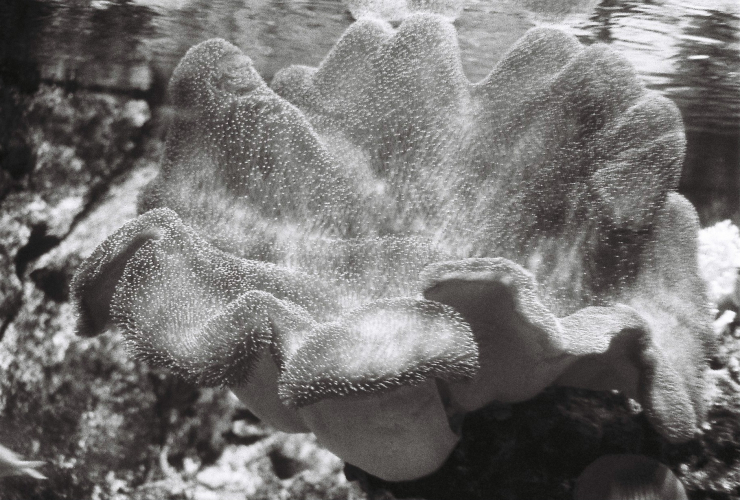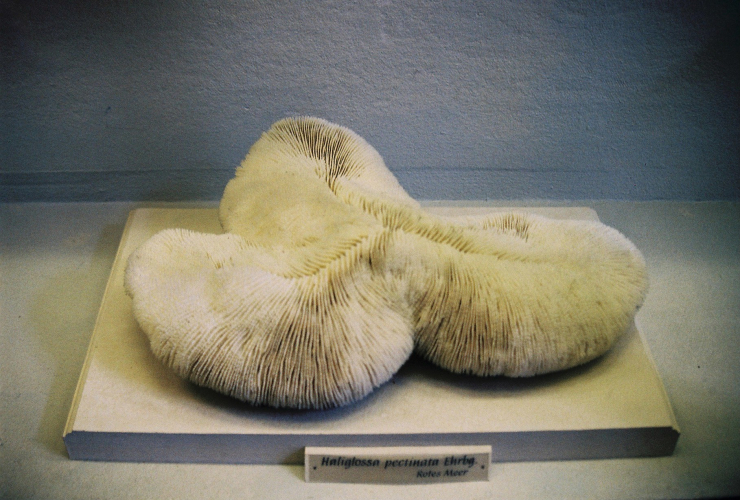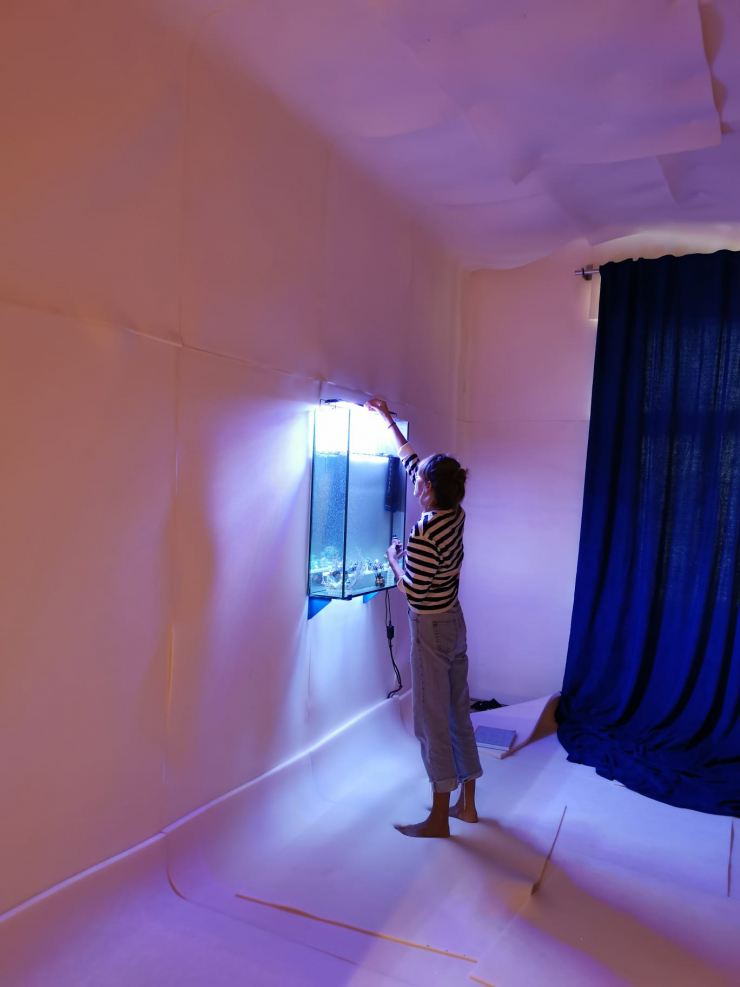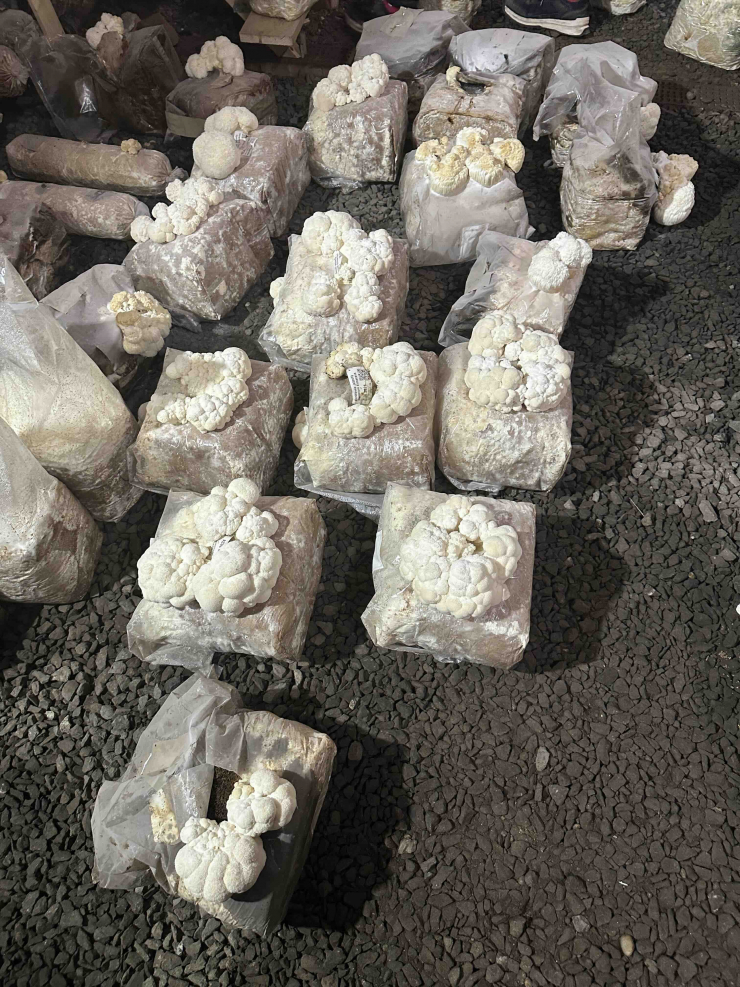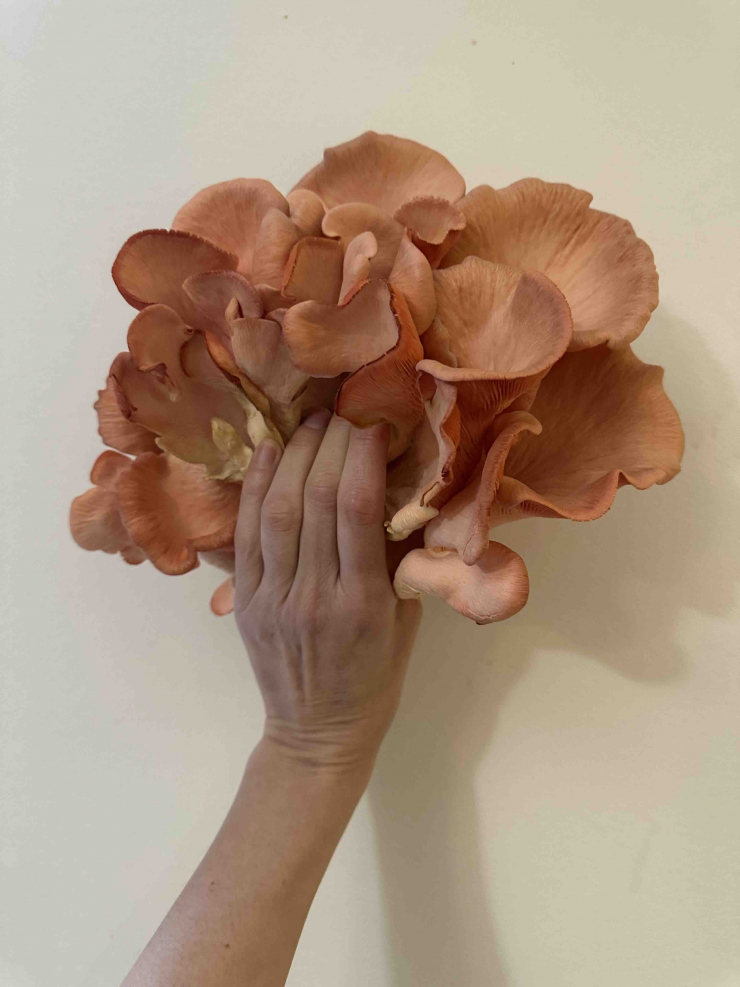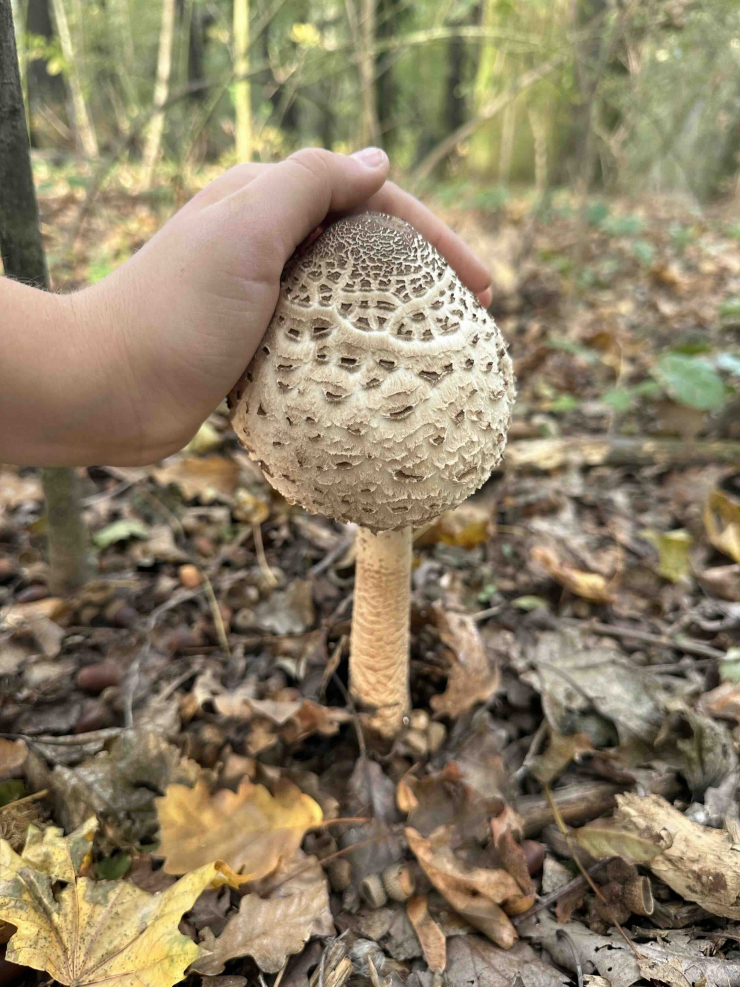Guide of the Natural Environments of Bratislava /Sprievodca prírodnými prostrediami Bratislavy
The Guide to the Natural Environments of Bratislava is a phase summarizing material from longer-term ac- tivities focused on topics related to the modified natural landscape, the concept of natural or urban environments, gardens, and parks. The collaboration with Peter Bartoš, particularly in developing his concept for the Bratislava Zoo, as well as visits to the Lamač area or his activism relat- ed to the Bratislava Old Town, had a significant influence.
The idea of actively modifying the landscape, cul- tivating, breeding, or farming encompasses a wide range of possibilities, many of which aim to improve the current state, while others are more invasive in relation to the nat- ural state of the environment. Humans intrusively enter the process, disturbing the balance, and even influencing the very entity that is life itself.
Nature has been a human invention since antiquity, and since then, the evolution of our brain’s physiology has stagnated. We have created our own culture as a species, Homo sapiens. We have codified anthropocentric meth- ods. Prometheus is like the gods, one of them, and he will either conquer them or at least deceive them. Manipulat- ing our surroundings is intrinsic to us.
Humans have always used nature for their benefit without much consideration. Since flexibility or adapt- ability is a sign of the strength of evolution, nature has been capable of responding and self-correcting. Balance. Perhaps it is the force of entropy, though our ability to comprehend disorder is questionable, or we could say it remains beyond our limits.
In addition to contemplating the landscape altered by humans, whether in a holistic view (P. Bartoš), i.e. pos- sibilities for harmonious coexistence of humans, animals, and plants, or a more conflict-driven one which disrupts relationships in nature, such as the climate crisis, there is also the idea of nature as something invincible and capa- ble of reinvention.
Jan Svěrák’s student film Ropáci (The Oilers) is a fictional documentary about creatures who live off of our waste, or rather, our product which harms both us and all other organisms. This utopian story is becoming increas- ingly more believable. New observations, such as those of fungi or sponges, support this.
If we start paying more attention to these „guerrilla“ existences in our cities, we will find them in our immediate surroundings. Nature quietly finds its way to us and can utilize everything for the preservation of life. It mimics, adapts, and survives, which is why we cannot be surprised by new species that are more successful than we are.
Even here, in our urban biotope, there are many such species, adapting perfectly to the available conditions. The natural environments described in this publication are therefore not only those that use or simulate real natural habitats, but they also include urban environments—orig- inally city spaces—that nature has adopted and learned to use to its advantage.
Sprievodca prírodnými prostrediami Bratislavy je etapou sumarizujúcou materiál z dlhodobejších aktivít, sústrediacich sa okolo tém upravovanej prírodnej krajiny, konceptu prírodných či urbánnych prostredí, záhrad a parkov.
Dlhodobý vplyv mala aj spolupráca s Petrom Bartošom na rozvíjaní jeho konceptu bratislavskej zoologickej záhrady či návštev lamačského prostredia, alebo jeho aktivizmu ohľadom bratislavského podhradia. A aktuálnejšie a nemenej dôležité bolo pre mňa stretnutie s Robertou Zábojník a Braňom Sidorom.
Myšlienka aktívnej úpravy krajiny, pestovania, šľachtenia, či chovu zahŕňa široké spektrum možností, mnohé s vedomím zlepšovať daný stav, poniektoré, invazívnejšie vo vzťahu k danému chodu vecí v prírode. Človek vstupuje intruzívne do deja, narúša rovnováhu, dokonca ovplyvňuje entitu, akou je sám život.
Príroda je ľudskou invenciou od antiky a odvtedy evolúcia fyziognómie nášho mozgu stagnuje. Vytvorili sme si kultúru vlastného druhu, Homo sapiens. Kodifikovali antropocentrické spôsoby. Prometeus je rovný bohom, je jedným z nich a ich premôže, či aspoň preľstí. Manipulácia vlastného okolia je nám vlastná.
Človek odjakživa využíval prírodu vo svoj prospech bez väčších ohľadov a keďže flexibilita či adaptabilita je prejavom sile evolúcie, príroda bola schhopná správnej reakcie a seba nápravy,. Rovnováha. Možno je to silou entropie, aj keď naša schopnosť porozumieť neuspriadanosti je otázna. Alebo ostáva v našich vlastných limitoch.
Okrem rozmýšľania nad krajinou, upravovanou človekom, či už ide o predstavu holistickú (P. Bartoš), teda možnosti harmonického spolužitia človeka, zvierat a rastlín, alebo konfliktnú,: narúšajúcu vzťahy v prírode,- klimatická kríza, je tu aj predstava prírody, ktorá je neporaziteľná a schopná reinvencie.
Študentský film Jana Svěráka Ropáci je fiktívnym dokumentom o živočíchoch, ktoré k svojmu životu potrebujú náš odpad, resp. Náš produkt, ktorý nám ako aj všetkým ostatným organizmom škodí. Utopický príbeh sa aktuálne stáva celkom uveriteľným. Potvrdzujú to aj nové pozorovania napr. húb či špongií.
Ak si len začneme všímať tieto guerilla existencie v našich mestách citlivejšie, nájdeme ich aj v našom bezprostrednom okolí. V skutku nenápadne si k nám príroda hľadá cestu a dokáže využiť všetko v prospech záchrany života. Mimetizuje, je adaptabilná a prežije, preto sa nemôžme čudovať novým úspešným druhom, úspešnejším než sme sami.
Aj tu u nás v našom mestskom biotope je ich mnoho, a výborne sa prispôsobili daným možnostiam. Prírodné prostredia, opisované v tejto publikácii, preto nie sú len tie, ktoré využívajú resp. simulujú reálne prírodné biotopy, ale sú to prostredia urbánneho typu, pôvodne mestské environmenty ktoré si príroda osvojila a naučila sa ich využívať vo svoj prospech.
Projekt podporila nadácia mesta Bratislavy, This project has been realised with the support of Foundation of Bratislava City
